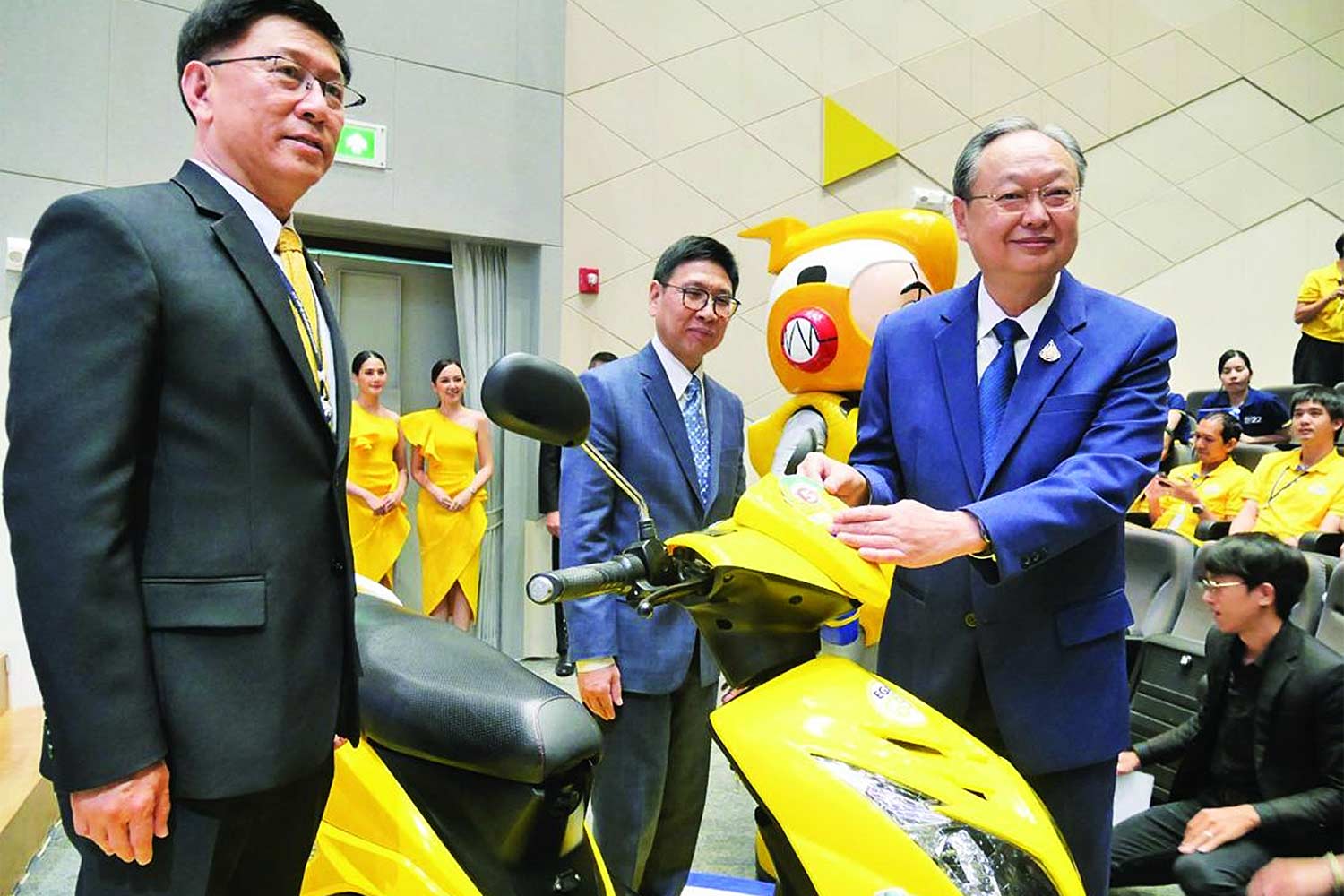
The government plans to launch additional measures for motorists to buy electric vehicles (EVs) and motorcycles this year to pump up demand for low-emission vehicles on local roads, says Energy Minister Sontirat Sontijirawong.
In addition, support policies for production and the supply chain of EVs will be disclosed soon to help determine new output of lithium-ion energy storage and vital parts of EVs.
Mr Sontirat said the government will offer tax waivers, discounts and partial subsidies as measures for car buyers.
"Many relevant state agencies have to further discuss the EV incentives, with meetings planned between representatives from the Finance, Industry and Energy ministries, as well as the Board of Investment [BoI]," he said.
The plan to launch additional EV measures came after the Energy Ministry met with the Electric Vehicle Association of Thailand (EVAT) last Thursday.
The EVAT called for the government to take more serious action in developing an EV roadmap to create a local market that can keep up with rapid improvements in EVs globally.
The government has promoted the EV industry since March 2017, launching investment privileges for companies and listing EVs as an S-curve industry with a goal to have 1.2 million EVs on roads and 690 charging stations by 2036.
Investment privileges from the BoI expired in 2018, attracting roughly 20-30 applications from many companies including carmakers, components manufacturers and newcomers in the EV industry.
EVAT said the current scheme has lured mostly manufacturers, but there are less incentives for the demand side and potential buyers.
Mr Sontirat said the government would revise the EV projection of 1.2 million cars to be more practical, with the goal determined after talks with other ministries and state agencies.
In addition, the country's power supply has a surplus capacity of 30%, expected to reach 40% in the next couple of years, meaning some of it can be absorbed by new demand for EVs, he said.
The government plans to set up an electricity rate to support the development of EV charging stations.
"Some regulations and conditions are barriers to implementing the EV scheme, so they have to be revised as well," said Mr Sontirat.
Separately, the Electricity Generating Authority of Thailand (Egat) has teamed up with 12 assemblers of electric motorcycles to launch the No.5 e-bike label in order to upgrade their quality in the Thai market.
Each motorcycle will be labelled with the No.5 sticker by Egat, expecting to certify 21,000 electric motorcycles and save 183 million baht annually in fuel expenses.
He said the ministry assigned Egat to adjust its business direction to cope with the coming disruptive technology in the power sector.
The global power industry is moving towards peer-to-peer power trading and focusing more on development of renewable power, allowing households can generate electricity by themselves.
The independent power supply has a capacity of 8,200 megawatts, up from 2,200MW a couple of years ago.